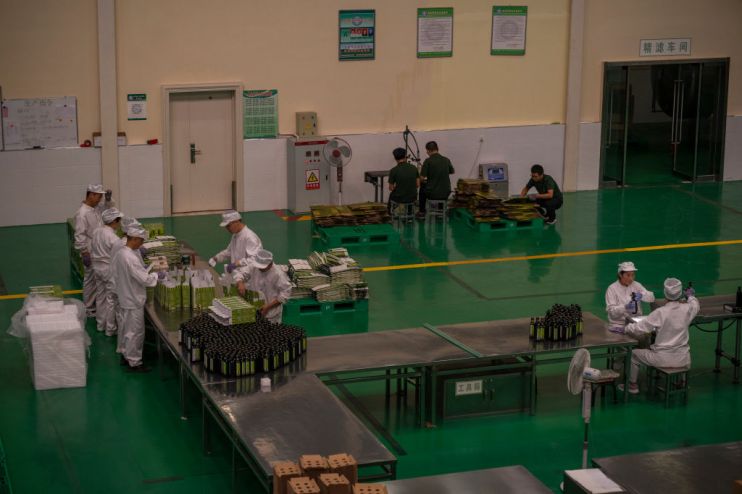Shortages and spiralling costs deal blow to Chinese economy

The steam engine of China’s economy unexpectedly shrank last month, indicating the global recovery from the Covd-19 crisis is losing momentum.
China’s manufacturing purchasing managers’ index, a closely watched indicator of the health of the country’s economy, notched a reading of 49.6 in September, lower than the 50.1 predicted by analysts.
China, like much of the rest of the world, is muddling through energy and raw material shortages caused by supply chains breaking down amid a resurgence in global demand as economies power back to pre-pandemic strength.
Tougher emissions standards in the country has led to a paucity of coal, a key material used in China’s manufacturing sector, meaning factories are curbing production.
This toxic combination has caused prices for raw materials to soar, making business less profitable for Chinese manufacturers and prompting them to rein in production.
Zhao Qinghe, a senior statistician at the National Bureau of Statistics, who released the data, said: “In September, due to factors such as low volumes of business at high energy-consuming industries, the manufacturing PMI fell below the critical point.”
A reading below 50 indicates a majority of businesses reported activity shrank over the survey period.
“(Chinese) economic growth in Q4 will likely slow further without a change of government policies, and the pace of slowdown may pick up,” Zhiwei Zhang, chief economist at Pinpoint Asset Management, said.
The findings come as Beijing has engineered a liquidity crisis at heavily indebted Chinese property developer Evergrande.
Fears about the embattled developer’s collapse has both rattled global financial markets and raised expectations that China’s economy is heading for a further slowdown.
Evergrande has around $305bn of liabilities. It recently missed an interest payment to overseas bondholders and sold its stake in a Chinese commercial bank to raise cash to pay creditors.
Chinese authorities have intensified their crackdown on the country’s highly leveraged real estate sector, which has been propped up by cheap money and loose lending controls at Beijing’s state-owned banks.
The country’s services industry grew in September, registering a 53.2 reading, up from 47.5 in August.